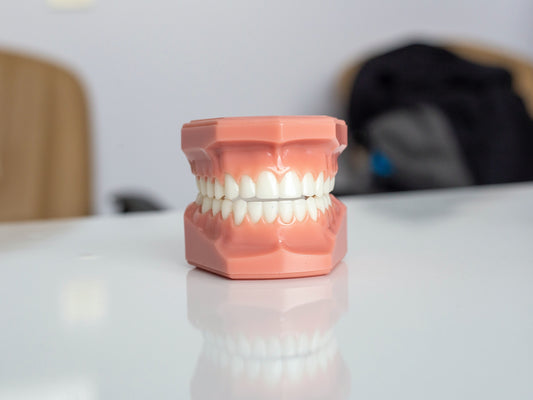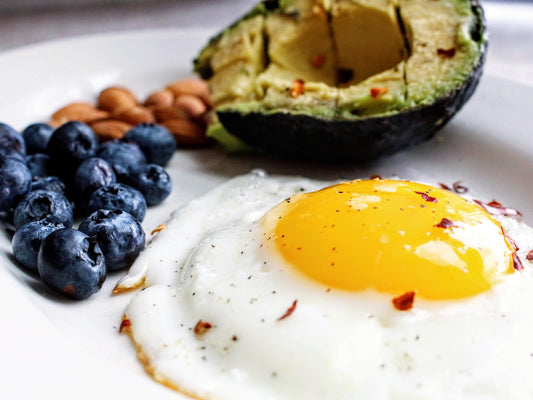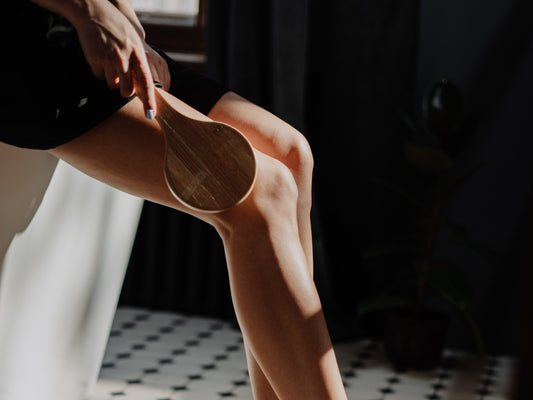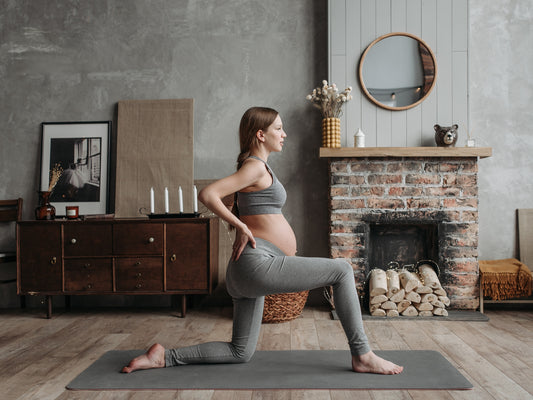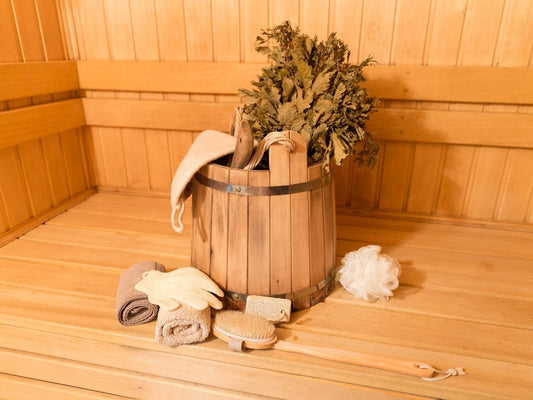In recent years, there has been a heap of research into the best ways to care for all of your body—including your voice. At Hydrant, we believe that hydration is key, and once again, the research is showing that we are right—the secret to the quality and safety of your voice might just be hydration. If you sing or do any sort of public speaking as part of your job or hobby, you’ll do anything to protect your voice, right? Avoiding certain medications, taking antacids, practicing warmups and strengthening exercises, learning breathing control—the list goes on. [1] But, you’re still searching for more; after all, you can’t be too protective! We’ve put together a summary of the latest research so you can see for yourself how hydration might help you out.

Your Vocal Cords
Your vocal cords are two folds of mucous membrane in the part of your throat called the larynx. When air passes over the cords from your lungs, they vibrate, producing a sound. This is much like when you pluck the strings of a guitar, and they vibrate, making a sound, and like on a guitar, the properties of the sound produced are changed by differences in the cords, and the vibrations produced. [2]
 The way the vocal cords vibrate is also controlled by the ‘biomechanical physiology’ of the cords—the properties of the living cells and tissues making up the cords. For example, one of the ways we measure the health of the vocal cords is the PTP, phonation threshold pressure. This is the minimum pressure required to get the vocal cords to begin moving and therefore vibrate the air and create a sound. Viscosity is one of the biomechanical properties of the vocal cords, and the higher the viscosity, the higher the PTP, and therefore the more pressure you require from your lungs in order to produce a sound. [3]
The way the vocal cords vibrate is also controlled by the ‘biomechanical physiology’ of the cords—the properties of the living cells and tissues making up the cords. For example, one of the ways we measure the health of the vocal cords is the PTP, phonation threshold pressure. This is the minimum pressure required to get the vocal cords to begin moving and therefore vibrate the air and create a sound. Viscosity is one of the biomechanical properties of the vocal cords, and the higher the viscosity, the higher the PTP, and therefore the more pressure you require from your lungs in order to produce a sound. [3]
There are two ways of hydrating your vocal cords. The first is systemic hydration—hydrating your whole body—which is achieved primarily through increased fluid input. This hydrates the cells and tissues that make up your vocal cords from the inside out. The second way is topical, or surface, hydration—hydrating the surface of your vocal cords.
Hydration and Your Vocal Cords
What does this hydration actually do? Well, that’s where the research comes in. Back in 2010, some researchers wrote a paper that talked about the relationship between hydration and viscosity of the vocal cords. When they dehydrated the vocal cords systemically, by taking water out of the tissue, the viscosity increased. This also happened when they topically dehydrated the vocal cords, by putting them in dry air. Increased viscosity leads to increased PTP, meaning more pressure is required to make a sound—a sign of lower vocal cord health and sure fire way to mean you get less for every breath. [3] Dehydration also results in an increase PPE–perceived phonatory effect, meaning that it feels harder to make each sound. [4] This is the last thing you want when singing or speaking to large crowds—every breath of air is precious!
You’ll also be able to maintain your voice for longer when you’re properly hydrated. A karaoke study (sounds fun, doesn’t it!) showed that singers who were better hydrated could keep singing for longer than dehydrated ones. [3] Other studies have shown that lack of hydration leads to singers having a hoarse voice, a sign of vocal fatigue, which leads to a loss of control of the muscles in the larynx. [5] Hydration is known to be related to muscle function, and recent research suggests (although doesn’t prove) that this is true in the laryngeal muscles too, which are important for control of your voice. [6]

As well as viscosity, which we mentioned earlier, tissue stiffness is also affected by hydration. This is yet another property that will influence vocal cord vibration—the more dehydrated you are, the stiffer the vocal cords are and therefore the poorer the quality of your voice. [7] There is also a suggestion in the evidence that the maximum vocal frequency that can be achieved is higher in hydrated singers. So, you’ve got a much greater chance of hitting your highest note if you’re well hydrated! [4,5]
Evidence is also starting to suggest that, when it comes to using your voice, it’s not only your vocal cords that are affected by hydration. Discomfort and fatigue in the neck, shoulders and back were reduced in patients in humid conditions when performing compared to conditions with low humidity. You’re also less likely to suffer from things such as dry mouth while singing or talking if you’re well hydrated. [3]
And the good news keeps coming! Proper hydration can actually protect your vocal cords too, and there is an increasing amount of research to show it. Water may act like a shock absorber, helping to protect your vocal cords from overuse. Better hydration has also been shown to decrease changes in vocal quality that come with a fatiguing voice. [3]
Furthermore, there’s some evidence to show that avoiding certain drugs such as atropine, antihistamines, aspirin, alcohol, and decongestants may not be as bad for your voice as we all say. These haven’t yet been compared to hydration, to see whether it’s better to be hydrated before you use your voice, or to not have had certain drugs, however, the preliminary research is there. It is important to note that a lot of these studies have been done on tissues, and not yet been fully investigated in humans—it’s very hard to measure the hydration level of the vocal cords while they are in your body. [6] There’s still a long way to go to fully understand the effects of hydration on you and your vocal cords.
Hydration for overall health of your body
However! Hydration is so important for the health of the rest of your body too—it’s not just your voice that needs it. Better concentration, better physical performance, healthier skin… all the essentials for a performer can be found in a glass of water, and these effects have been shown by science time and again. We love hydration so much we’ve written all about the benefits here. You won’t do any damage to your health by hydrating, so we think it’s a pretty good place to start to get you (and probably your vocal cords!) in shape.

However, water alone isn’t enough for good hydration. Your body needs a blend of electrolytes too, in order to be able to make the most of the water you give it. These electrolytes are lost in body process like urine and sweat, so like water, they need topping up. You don’t need to worry though—we’ve sorted a perfect blend for you here at Hydrant. And if that’s not enough, that blend helps you hydrate fast, so you’ll always be ready.
So, you’re about to go on stage, or to rehearsal, and you want to make sure that not only does your voice sound its best, but that you don’t cause any damage. Reach for a sachet of zingy Hydrant, stir it into a glass of water, and be your very best self. Find out more here.
Writer: Ailsa McKinlay
Editor: John Sherwin
References
[1] Voice Care Tips - Your Personal Singing Guide - Here’s a run down of some classic top tips for looking after your singing voice.
[2] Vocal Cord - Encyclopedia Britannica - Encyclopedia Britannica is a great place to go for conscience, helpful definitions of key terms.
[3] Protoc, C. & Author, T. The Role of Hydration in Vocal Fold Physiology. 1–20 (2011). doi:10.1002/0471140856.tx0709s49. Overview - An article bringing together lots of research about the influence of hydration on the workings of your vocal cords.
[4] Alves, M., Krüger, E., Pillay, B., van Lierde, K. & van der Linde, J. The Effect of Hydration on Voice Quality in Adults: A Systematic Review. J. Voice 33, 125.e13-125.e28 (2019). - This brand new research looks at a whole range of ideas on the topic.
[5] van Wyk, L., Cloete, M., Hattingh, D., van der Linde, J. & Geertsema, S. The Effect of Hydration on the Voice Quality of Future Professional Vocal Performers. J. Voice 31, 111.e29-111.e36 (2017). - This paper looks specifically at a group of people who are training for professional singing careers, and does a variety of tests to investigate the impact of hydration on the quality of their voices.
[6] Hartley, N. A. & Thibeault, S. L. Systemic hydration: Relating science to clinical practice in vocal health. J. Voice 28, 652.e1-652.e20 (2014) - This paper, published in a journal dedicated to the topic of ‘Voice’, help relate the scientific research to the clinic - how should doctors advice patients, based on the latest science.
[7] 1. Chan, R. W. & Tayama, N. Biomechanical effects of hydration in vocal fold tissues. Otolaryngol. - Head Neck Surg. 126, 528–537 (2002). - This paper focuses very specifically on the biomechanical properties of the vocal cords in different hydration states .














